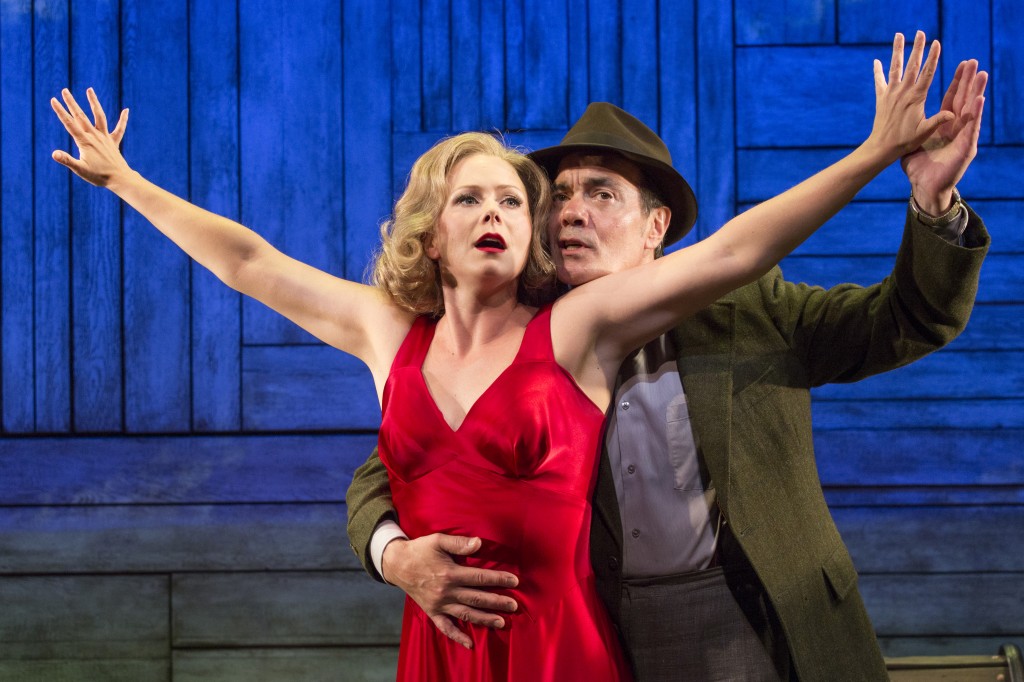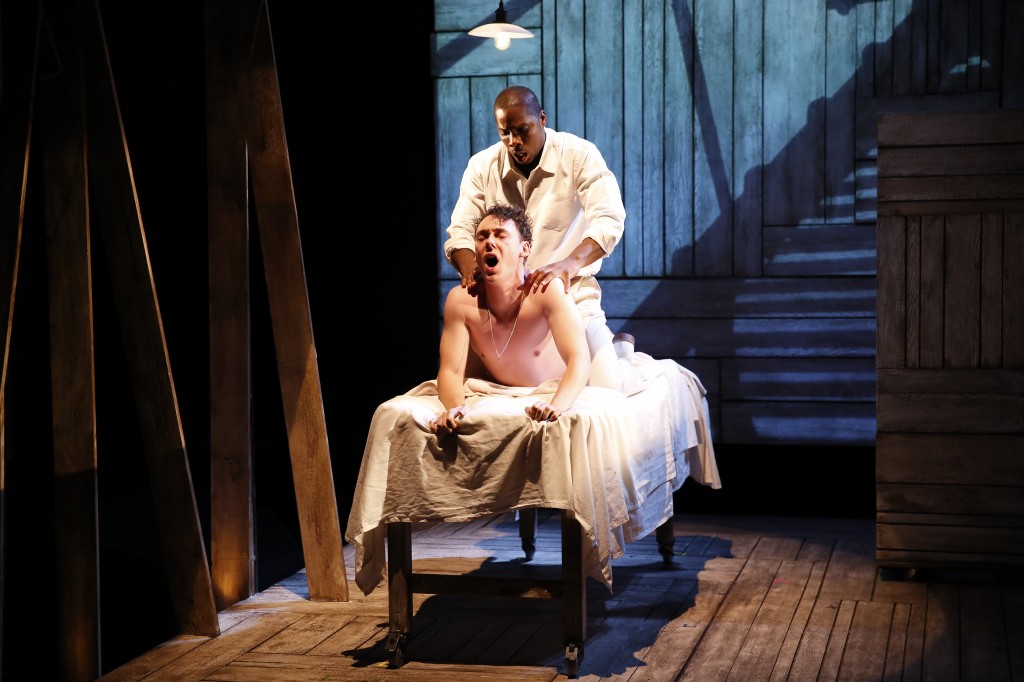Describing the internal conflict resulting from being an African American in a white-dominated society, W. E. B. Du Bois famously stated, “It is a peculiar sensation, this double-consciousness, this sense of always looking at one’s self through the eyes of others.” The fragmented black identity is a guiding motif in Nambi Kelley’s theatricalized Native Son, currently running in repertory with Measure for Measure at the Duke on 42nd Street. Adapted from Richard Wright’s 1940 novel, this version eschews the socially realistic approach of previous stage and film treatments and thrusts the audience into a 90-minute expressionistic fever dream.
An Evening Called Desire
The wonderful (and often weird) works of Tennessee Williams have graced the stages of New York City in a kaleidoscope of iterations. From The Glass Menagerie and A Streetcar Named Desire on Broadway, to his later, queerer works in off-off-Broadway houses, there has hardly been a lack of opportunities to see this beloved American playwright’s work come to life in our city. An interesting new addition to the menagerie of Williams' productions is The Acting Company’s Desire: An Evening of Plays Based on Six Stories by Tennessee Williams at 59E59 Theaters. Authored by six different playwrights, the short plays in Desire take a variety of approaches to their adaptations of Williams’ short stories, which he wrote throughout his career. The quality and composition of each vignette is as varied as the dramaturgical approaches, but overall, Desire amounts to an enjoyably mottled evening of play, all in the spirit of Tennessee.
Most impressively, Desire boasts a knockout cast. Every performer is solidly dedicated to their character and action, but Liv Rooth and Megan Bartle stand out in particular. Rooth commands the room as Clara in Tent Worms and proceeds to dazzle with Anna’s frenetic energy in Oriflamme. Bartle demonstrates an impressive range as a weepy fiancée, Betty, in You Lied to Me About Centralia and then as a curious sorority girl, Layley, in The Field of Blue Children. As Layley, Bartle delivers a sexually triumphant and revelatory monologue, which practically brought the house down. Indeed, Williams’ spirit is perhaps best communicated through the talents of this versatile cast.
Each short play varies greatly in style, structure and language. Beth Henley’s The Resemblance Between a Violin Case and a Coffin and Rebecca Gilman’s The Field of Blue Children are both plot-driven, heavy on events and action, and aim to tell a complete story. Despite their structuring, these plays’ best moments occur when they swerve away from their plots to divulge into character development. On the other hand, Marcus Gardley’s Desire Quenched by Touch, Elizabeth Egloff’s Tent Worms, and David Grimm’s Oriflamme situate seemingly everyday characters within apparently normal narratives, but in true Williams' style, each story gradually distorts itself into a strange and otherworldly version of reality. Finally, John Guare’s You Lied to Me About Centralia is an adaptation of “Portrait of a Girl in Glass,” which is the short story that inspired The Glass Menagerie. This short play rewards the audience with winks at the Wingfield characters and their eccentric dinner.
Director Michael Wilson situates each play in its own discrete style—in honoring the diversity of the playwrights—but blends their worlds together via beautifully choreographed scene transitions. Wilson also highlights Williams’ affinity for objects, which are so often laden with rich and symbolic meaning. His staging illuminates important objects such as Anna’s swishy red evening gown (Oriflamme), Richard Miles’ coffin-like violin case (The Resemblance Between a Violin Case and a Coffin), Jim’s glass figurine (You Lied to Me About Centralia), and Grand’s paper bag lunch (Desire Quenched By Touch). One thing the overall production lacked was a Williams-esque rawness: its staging and design were quite safe, lacking some of the grit and strangeness that often pervades Williams' writing, but is often ignored and polished over.
Undeniably, the cast and production is well-rehearsed and everything runs smoothly and professionally; but perhaps a little more impromptu wildness and odd eccentricities would have raised the stakes on its effect. In any case, Desire is a most welcome addition to the Tennessee Williams performance repertoire, and these short plays add flourish to the posthumous portrait of this strange and beloved author.
Desire: An Evening of Plays Based on Six Stories by Tennessee Williams plays through through Oct. 10 as part of the 5A Season at 59E59 Theaters (59 E. 59th St. between Park and Madison Aves.) in Manhattan. Evening performances are on Thursday at 7 p.m. and on Friday and Saturday at 8 p.m. Matinees are at 2 p.m. on Saturday and 3 p.m. on Sunday. Single tickets are $70 ($49 for 59E59 members). To purchase tickets, call Ticket Central at 212-279-4200 or visit www.59e59.org.









